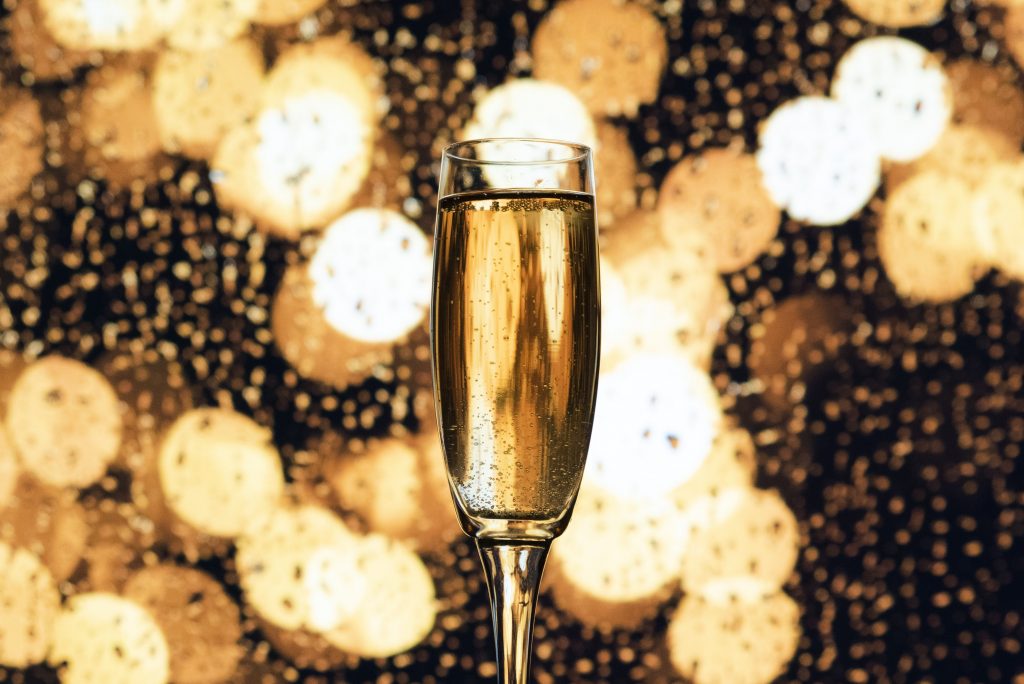This post is also available in Dutch.
It’s almost 2021 and many people will probably start this new year with a celebratory glass of champagne. Even though alcohol is known to impair all kinds of cognitive functions, it seems like drinking a glass of champagne does not impair your ability to speak a second language, and might even improve it. How does that work?
No impairment…
The most recent study about this was carried out at the Lowlands music festival in the Netherlands. Here the researchers could find plenty of people who had had a drink. The festivalgoers had to read sentences in Dutch (their native language) and in English (their second language), and their alcohol levels were measured. Later, the pronunciation of the Dutch sentences was rated for intelligibility (how easy they were to understand), and the English sentences for how much the speaker sounded like a native English speaker. The results showed that the more intoxicated the participants were, the less intelligible their Dutch was. Surprisingly, the alcohol levels did not affect the ratings of their English pronunciation. A similar pattern was found in another study in which Hungarian participants took three shots of alcohol before producing tongue twisters, after which they made more mistakes in Hungarian, but not in a foreign language.
And sometimes even improvement!
Even though it is already remarkable if foreign language pronunciation doesn’t get worse, some studies even find an improvement after drinking a small amount of alcohol. When German students with Dutch as a second language drank a vodka-bitter lemon or a glass of water, their Dutch pronunciation got better ratings after drinking the vodka. Also in another study foreign language pronunciation improved after drinking a cocktail with low doses of alcohol, but worsened after drinking a cocktail with high doses of alcohol.
So it seems that even though drinking some alcohol may make you slur your speech in your mother tongue, it doesn’t worsen or sometimes even improves your second language pronunciation. This could be because alcohol makes people less nervous to speak in their second language, although the Lowlands study found no link between alcohol levels and anxiety. The researchers speculate that alcohol reduces the effect of our mother tongue on our second language. To understand these effects better, it’s also important to find out whether how proficient you are in the second language influences the effect of alcohol on pronunciation. Anyway, after “toasding with champlagne on Yew Near’s Eve”, I wish you a “gelukkig nieuwjaar”!
Credits
Auteur: Marlijn ter Bekke
Editor: Felix Klaassen
Vertaling: Marlijn ter Bekke
Editor vertaling: Monica Wagner
Photo by Jaeyoon Jeong via Unsplash
